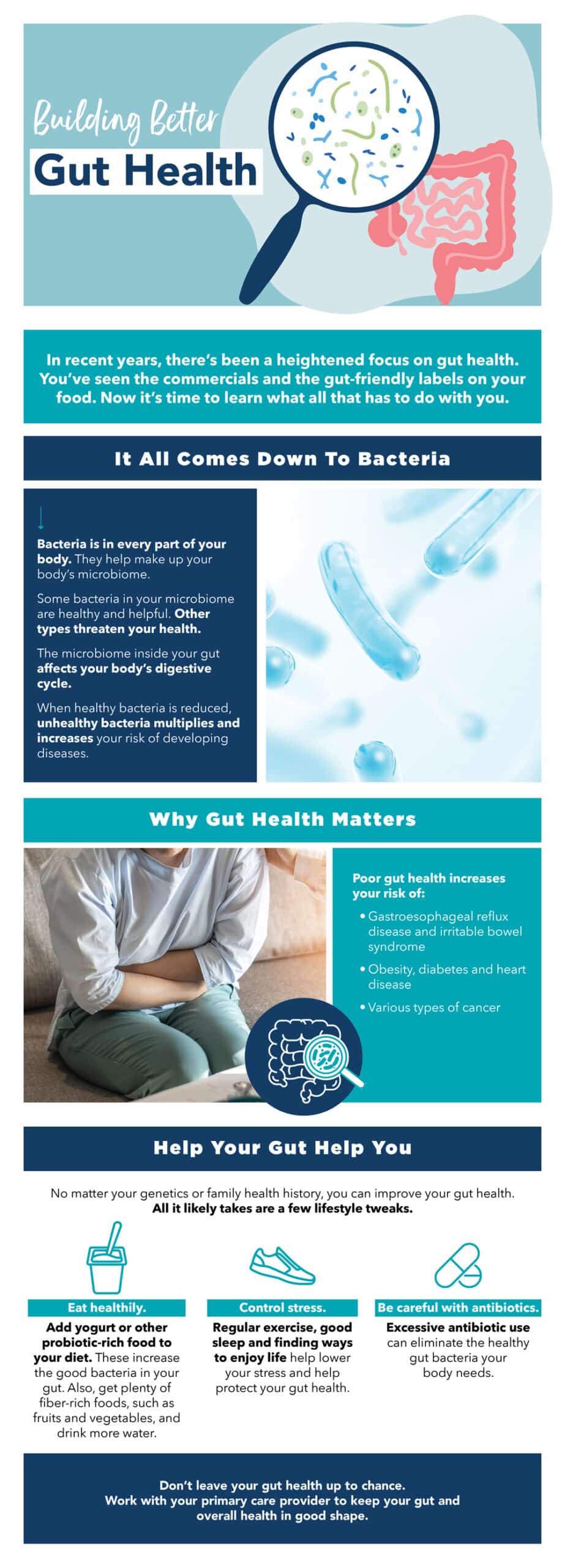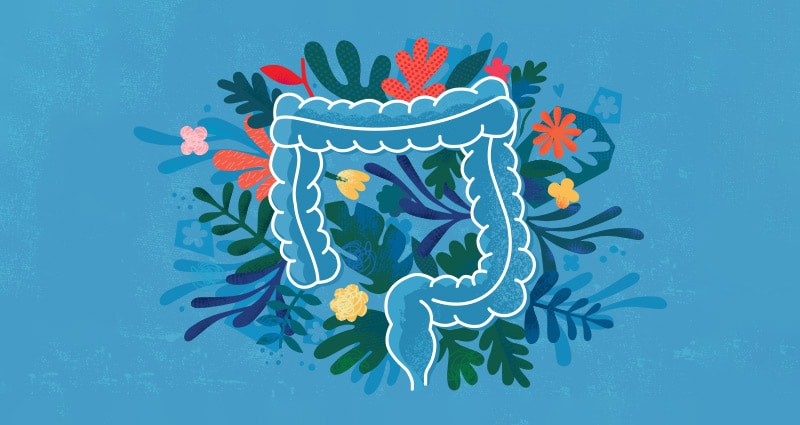You want to stay healthy. Maybe you do your best to eat good foods and work out to keep your waistline from expanding. But good health goes deeper than your waist, and good gut health goes even deeper.
Why Gut Health Matters
Your gut is also known as your gastrointestinal (GI) tract. It helps your body process food and drinks. The GI tract also gets rid of calories you don’t use. When you have good gut health, you probably don’t think much about it. You enjoy life, eating and drinking what you like without any negative effects. However, a number of gut health problems can develop over time.
Poor gut health can lead to all sorts of digestive issues, including:
- Gastroesophageal reflux disease (GERD)—Stomach acid and other stomach contents backwash into your esophagus, which may cause heartburn, nausea, swallowing difficulties or chronic hoarseness.
- Irritable bowel syndrome (IBS)—Though it doesn’t cause damage to the gut, IBS can cause substantial discomfort and frustration. With IBS, you may experience constipation or diarrhea. Bloating and stomach pain are also common symptoms.
Digestive issues aren’t the only reason to strive for good gut health. Your risk of obesity, cancer, diabetes and cardiovascular disease all increase with an unhealthy gut.

Protect Your Health
Several factors affect the likelihood of developing gut problems. These factors include:
- Family health history
- Your body’s structure
- Your personal genetics
Fortunately, your gut health isn’t totally out of your control.
Your body contains an abundance of microorganisms including bacteria, fungi and even viruses. This collection of naturally occurring microorganisms makes up your microbiome. When your microbiome isn’t in good shape, your health is at risk.
Normally, the good bacteria in your microbiome keep bad bacteria under control. An unhealthy microbiome allows bad bacteria to take over. As a result, you’re more likely to experience chronic disease. Your microbiome is negatively affected by poor diet, stress, antibiotic abuse and other factors.
Improve Your Gut Health
To build a healthy microbiome, start with your diet. Good eating habits make the gut stronger. Even if you’ve developed bad eating habits through the years, there’s still hope. You can improve your microbiome within just 24 hours when you change your diet.
What does good, gut-focused eating look like? Getting plenty of the following:
- Fruits, vegetables, whole grains, legumes and other fiber-rich foods
- Water
- Yogurt and other foods with probiotics
You can further improve your gut health by limiting alcohol, managing stress, exercising 30 minutes a day, getting seven to nine hours of sleep each night and connecting with loved ones.
It’s also important to only take antibiotics when necessary. Overuse of antibiotics can destroy the healthy bacteria in your gut.




